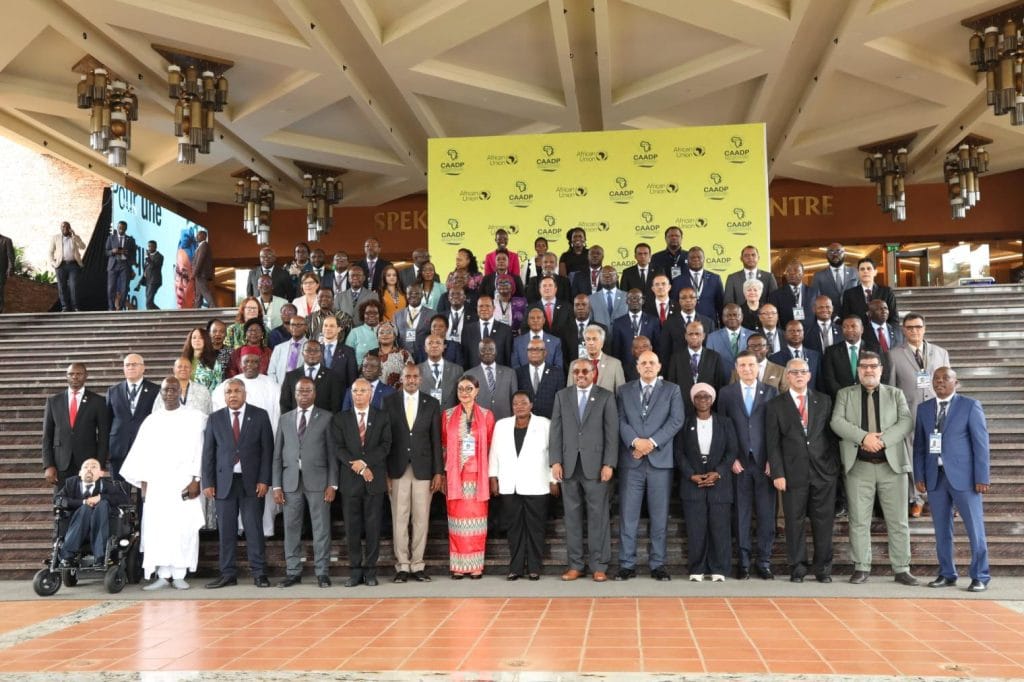Agricultural ministers from across Africa have gathered in Uganda this week to tackle the pressing issues surrounding food security and sustainability. The ministers are working to craft a 10-year action plan aimed at reducing Africa’s dependence on food imports, modernizing farming practices, and enhancing agricultural resilience in the face of climate change.
The summit, taking place in Kampala with more than 2,000 delegates in attendance, is focused on developing sustainable agricultural practices and robust food production systems to address Africa’s growing challenges. With rising food prices, climate disruptions, and shifting consumer demands, African leaders are determined to reshape the continent’s agricultural future.
Opening the summit, Uganda’s Prime Minister Robinah Nabbanja urged the ministers to design policies that will help Africa achieve food self-sufficiency, reduce reliance on external food supplies, and ensure the agricultural sector is resilient to both climate change and unforeseen challenges. Nabbanja called on African governments to invest in long-term solutions that integrate technology and innovation into agriculture.
Recent years have seen a troubling rise in food prices across Africa, fueled by droughts, floods, conflicts, and the broader impact of climate change. According to the UN Conference on Trade and Development (UNCTAD), global food insecurity has risen sharply, with the number of people facing hunger jumping from 512 million in 2014 to over 790 million by 2021. This stark increase has disproportionately affected African nations, making the need for a self-reliant food system even more urgent.
At the heart of the summit discussions is the need to create a forward-looking strategy that addresses the challenges of changing weather patterns, shrinking farmlands, and the ongoing threat of conflicts. Ministers are looking for ways to adapt Africa’s agricultural practices to better meet the needs of the continent’s growing population while also ensuring that food systems are more resilient to future shocks.
David Nabarro, coordinator of the U.N.-backed Scaling Up Nutrition movement, stressed that Africa has the potential to become self-sufficient in food production. Through regional cooperation and the sharing of best practices, he believes Africa can reduce its reliance on food imports and become a food-exporting powerhouse within the next decade. “Africa has the capacity to be a leader in food production,” Nabarro said, “provided we work together and build on each country’s successes.”
Appolinaire Djikeng, director of the International Livestock Research Institute, echoed this sentiment, calling for stronger collaboration and greater investments by African governments in agriculture. He pointed out that a collective effort, involving governments, international organizations, and the private sector, is essential for the continent’s food systems to thrive. Djikeng also emphasized the importance of investing in agricultural education and building institutional capacities to support long-term development.
Several African nations, including Benin, Ethiopia, Lesotho, and Malawi, have already committed over 10% of their national budgets to improving agriculture, according to analysts tracking the progress of the Comprehensive African Agricultural Development Programme (CAADP). These efforts are seen as critical steps toward achieving the continent’s food security goals.
As the summit concludes on Saturday, heads of state are expected to endorse a strategy and action plan from CAADP, which will guide Africa’s agricultural policies and food systems for the next decade, starting in 2026. The plan promises to address the challenges of food insecurity while promoting sustainability and self-sufficiency across the continent, setting the stage for a more resilient African agriculture sector in the years to come.


